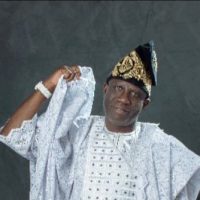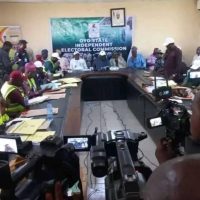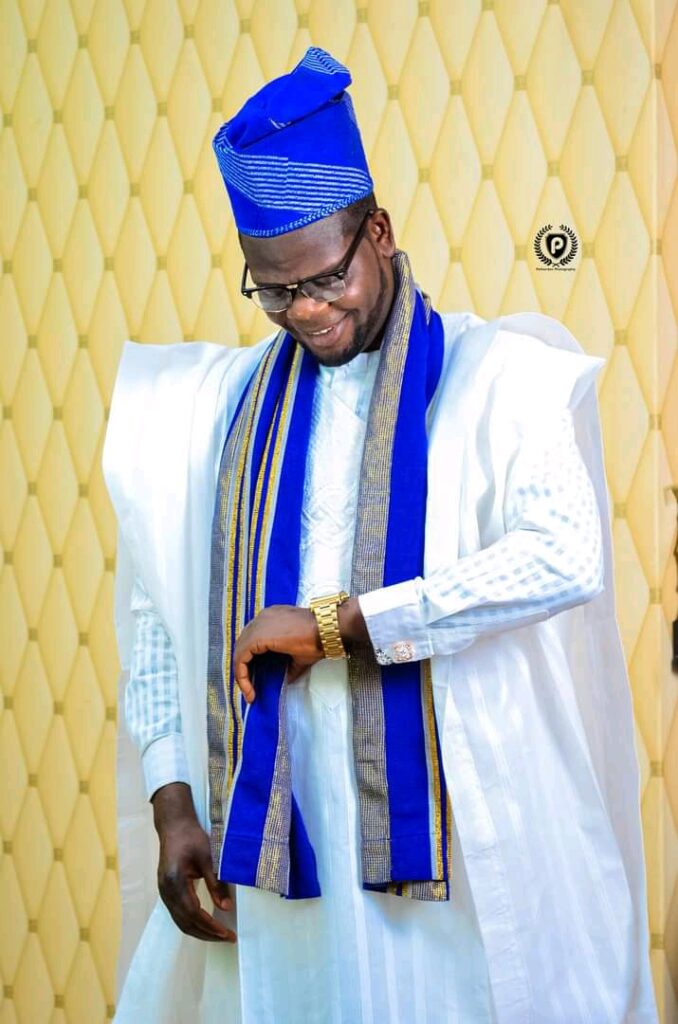At the mention of the name – Oriyomi Hamzat, what readily comes to mind is Agidigbo. Agidigbo is a well-crafted name given by and to the radio station of the doyen of modern-day investigative journalism. Agidigbo in Yoruba parlance is a traditional talking drum that has a unique sound; so much audible to the most deafening ears.
The agidigbo or molo is a large traditional plucked lamellophone thumb piano used by the Yoruba people of Nigeria to play apala music. It is a box, big enough to sit on the musician’s lap, with 4 to 5 strips of metal set up side by side on top like keys on a piano keyboard.
The tongues are designed to vibrate and produces sonorous tones. Because of the Yoruba language’s nature as a tonal language, the agidibo can act as a musical speech surrogate, conveying language through its tones. Thus the altruism; ” bi owe, bi owe, la n lu’lu Agidigbo” Therefore, the choice of Agidigbo was not accidental. A philosophical name that depicts the objective and defines the modus operandi of the media station.
Impliedly, the drum echoes a meaning and an operation that makes some unscrupulous elements in the society pant and shiver. Far from unnecessary diplomacy, the name frowns at any attempt to be economical with the truth. Few stations in the global world have the tenacity to uphold such virtues like honesty and un-prejudicial report like Agidigbo FM. To the enigmatic owner the station, truth fears no man. This is a philosophy that has endeared him into the hearts of millions of people across the world who listen with rapt attention to his presentation usually characterised by comic reliefs. All these wax together led to his numerous titles like: The Conscience of the nation, Advocate of the masses, voice of the voiceless, defender of human rights, promoter of good governance, one-man pressure group and the people’s police.
Every media practitioner is a journalist and journalism is a profession. Conventionally, press has been seen as the fourth arm of government. Though an un-official nomenclature, it is a profession which has over the years serves as checks and balances to the official three arms of government of executive, legislative and judiciary.
Journalism is the activity of gathering, assessing, creating, and presenting news and information.
Journalism can be distinguished from other activities and products by certain identifiable characteristics and practices.These elements not only separate journalism from other forms of communication, they are what make it indispensable to democratic societies.
Journalism is of various branches. Of all the branches, investigative journalism is the most hazardous. It is all about exhuming facts in this hostile society, finding, reporting and presenting news which other people try to hide. It is very similar to standard news reporting except that the people at the centre of the story will usually not help and may even try to stop the job. The duty of a journalist is to keep people abreast of happenings in the society. It is however a wonder that Alhaji Oriyomi Hamzat chose to tilt towards investigative journalism in view of its hazardous nature. That he has flare for this particular aspect of journalism tells much about his pedigree.
Lord Northcliffe once said: “News is what somebody, somewhere wants to suppress.”
Oblivious of occupational hazards, Dr. Oriyomi Hamzat has deliberately chosen to thread the path which so many despise. People have a right to know about the society in which they live.They have a right to know about decisions which may affect them even if people in power want to keep them secret. But the courage to inquest is uncommon as found in the erudite media ace.
A significant number of journalists get a lot of requests from people to investigate some alleged wrongdoing. In many cases these are silly matters, lies or hoaxes.
Alhaji Oriyomi is not one that could be easily induced with money to air unsubstantiated story. All he does is to spend some time on each tip-off to decide whether or not it will make a story devoid of maligning reputation or castigating aspersion of anybody in what is known as jungle journalism. However, he has penchant for not allowing possible story clues escape. He is a master listener to careless words that give the first clues to something wrong but will never write a story based on rumour. He certainly goes for accurate, factual news and evidences.
Investigative journalism is not as easy as we may think. One needs to fit the facts together as he gathers the stories to make sure that they make sense. It is like doing a jigsaw. At the beginning, you have a jumble of pieces. Only slowly will they emerge as a picture. Unlike a jigsaw puzzle, one may not have all the pieces at the beginning but has to recognise which pieces are missing.
His ability to maintain confidentiality about his sources of information,
courage to withstand threats from people he is investigating and his attitudes towards working within the ambit of law are other qualities embedded in Oriyomi. These perhaps could be attributed to the fact that he has never been challenged on anything he exposes.
Dr Hamzat Oriyomi is a replical of frith and he demonstrates this through his innovation of conflict resolution programmes on air which has really being helpful in bringing peace and preventing animosity amongst the populace. Kokoro Alate and Kato domo eye loro are two programmes that have become daily routine of all and sundry. He is a promoter and defender of cultural values. He is always ready to dive deep into the nuances of the topic he is focussing on; unveiling concealed matters without trepidation and crucially contributing to freedom of expression which are at the heart of UNESCO mandate. Oriyomi does not believe in pervasive clientelism. He does not allow any mutual relationship between the media and public office-holders where journalists often serve political interests rather than the common good.
With his two aforementioned programmes on 88.7 FM, Dr. Oriyomi has been able to illuminate the darkest corners of not only the world but individuals heart. This is achievable through intense focus which more often than not has to do with risking his life for the emancipation of truth. This is a great sacrifice which helps him thrive where police fails.
Born into a family of on- air presenter in Ibadan around the 1970s, Oriyomi took after his Father who worked with NTA Ibadan. It could be inferred that his choice of journalism is not a mistake; it is somewhat hereditary.
Alhaji Dr. Oriyomi Omo Amusa deserves the United Nations prestigious award of Nobel laureate on social justice and humanity. His philanthropy gesture is irrespecta of race, clans of religion. Only God knows the number of people he has saved from catastrophe, oppression and those missing fellows he has linked to their relations through his radio programmes.
Permit me to conclude by presenting the lyrics of the sonorous song that conveys the operational objectives of one of his widely accepted progrmmes. The song was composed by Fuji wizard, Saheed Osupa.
” Kokoro Alate …
T’ohun tate ni…
Owu alate…
T’ohun tate ni…
Tete opopo…..
Abonde lorun…
Onikaluku……
Lo sa ti ni ti e lara.”
Comrade Lekan Badmus is a columnist with Oduduwa Online news. He is also a public opinion analyst.
For comments:
lekanbadmuscolumn@gmail.com


